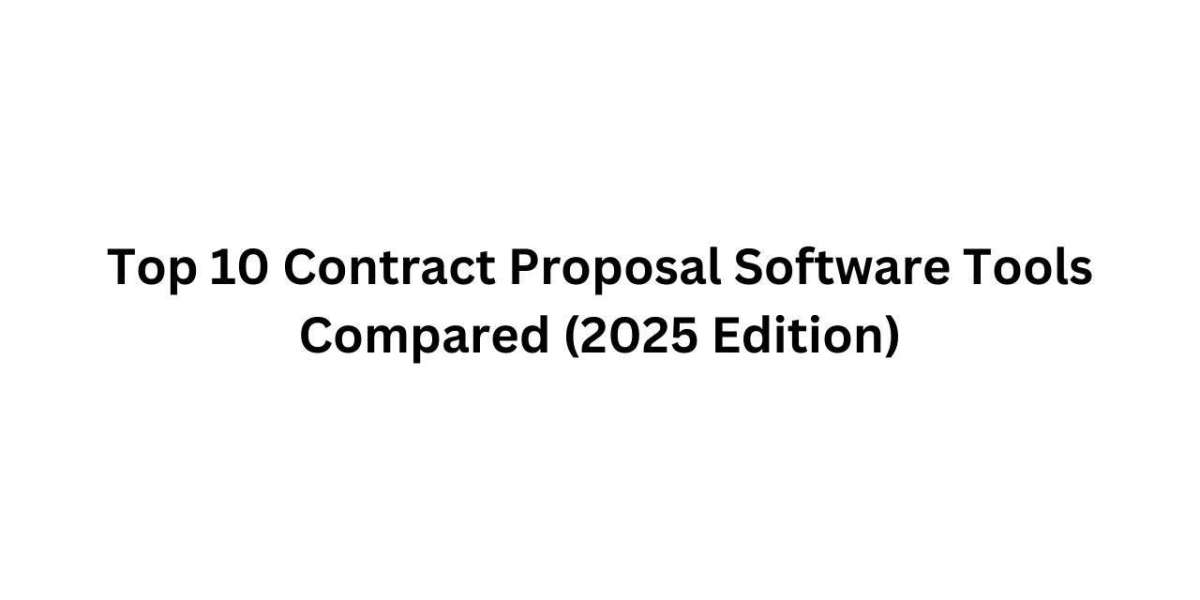In 2025, businesses no longer have the luxury of wasting time on manually crafted proposals and contracts. Whether you are in sales, marketing, legal, or consulting, the efficiency and accuracy of your proposals can determine whether you win or lose a client. That is why Contract Proposals Software has become a critical asset in the modern business toolkit.
These platforms are designed to help you create, manage, send, and track professional-looking proposals and legally binding contracts. They reduce human error, save hours of time, and provide real-time insights into client engagement. But with so many tools out there, how do you choose the right one?
In this blog, we review and compare the top 10 Contract Proposals Software platforms for 2025 to help you find the best fit for your business needs.
1. PandaDoc – Best for All-in-One Document Workflows
Overview:
PandaDoc offers a full suite for managing proposals, contracts, quotes, and eSignatures. It is highly customizable and user-friendly, making it one of the most popular Contract Proposals Software tools.
Key Features:
Drag-and-drop document builder
CRM integrations (HubSpot, Salesforce, Zoho)
Real-time notifications and analytics
Legally binding eSignatures
Pros:
Great for both sales and legal teams
Broad template library
Affordable for small to midsize businesses
Cons:
Some advanced features require higher-tier plans
2. Proposify – Best for Design-Focused Teams
Overview:
Proposify is perfect for agencies and teams who want their proposals to make a visual impact. It offers excellent branding options and clean formatting tools.
Key Features:
Custom branding templates
Interactive pricing tables
Client comment sections
Sales content library
Pros:
Strong visual presentation
Built-in collaboration tools
Client analytics
Cons:
Slight learning curve for template design
3. Better Proposals – Best for Speed and Simplicity
Overview:
Better Proposals is known for its fast setup and user-friendly interface. It is ideal for freelancers, consultants, and small businesses.
Key Features:
Pre-designed one-page proposal templates
Built-in eSignature and payment support
Real-time open and read tracking
Pros:
Very quick to deploy
Clean, responsive layout
Affordable pricing
Cons:
Limited customization
Fewer integrations compared to others
4. Qwilr – Best for Interactive Web-Based Proposals
Overview:
Qwilr transforms traditional proposals into modern, web-based documents that are visually impressive and interactive.
Key Features:
Web-based proposal builder
Video, map, and pricing embeds
Mobile responsiveness
Analytics and notifications
Pros:
Exceptional client experience
Modern and dynamic design
Seamless integrations
Cons:
Less suitable for formal legal documents
Not ideal for teams that need downloadable PDFs
5. DocuSign CLM – Best for Enterprise Legal Teams
Overview:
DocuSign CLM goes beyond proposals and focuses on full contract lifecycle management. It is ideal for enterprise-level contract workflows.
Key Features:
Automated approval workflows
Clause and template libraries
Audit trails and compliance tools
Deep Salesforce integration
Pros:
Excellent for complex legal documents
Security and compliance built-in
Scales with enterprise needs
Cons:
More expensive than others
Not designed for creative or marketing teams
6. XTEN-AV – Best for AV and Technical Proposal Needs
Overview:
XTEN-AV is a Contract Proposals Software designed specifically for the audiovisual industry. It links AV design tools directly into the proposal creation process.
Key Features:
AV-specific templates and design integration
Smart BOM (Bill of Materials) sync
Proposal collaboration and tracking
Cloud-based platform
Pros:
Industry-specific automation
High accuracy and efficiency
Reduces design-to-document time
Cons:
Niche focus may not suit general users
Requires onboarding for non-AV users
7. Nusii – Best for Creative Agencies and Freelancers
Overview:
Nusii is a lightweight tool aimed at creatives who want stylish, quick proposals with minimal setup.
Key Features:
Branded proposal templates
Reusable content blocks
Proposal performance tracking
Pros:
Very intuitive
Looks great out of the box
Perfect for design studios
Cons:
Not built for contract-heavy workflows
Limited advanced features
8. ClientPoint – Best for Large Sales Teams
Overview:
ClientPoint offers a robust platform for enterprise sales teams that manage multiple proposals across clients and regions.
Key Features:
Document automation and branding
CRM and analytics integrations
Custom sales dashboards
Pros:
Built for scale
Centralized content management
Excellent support
Cons:
Complex to set up
Premium pricing
9. QuoteWerks – Best for Detailed Pricing and Quotes
Overview:
QuoteWerks is tailored for companies that require detailed pricing and quoting features within their proposals.
Key Features:
Line item quoting tools
Product catalog integration
Approval routing and pricing logic
Pros:
Great for hardware and service bundles
Detailed control over pricing
Cons:
Outdated interface
Learning curve for new users
10. GetAccept – Best for Sales Automation and Video Integration
Overview:
GetAccept blends proposal management with sales enablement tools. It allows sales teams to personalize proposals with video, chat, and document automation.
Key Features:
Proposal templates with embedded video
Live chat inside proposals
CRM syncing and automated workflows
Pros:
Unique engagement features
All-in-one sales tool
Video proposals increase conversions
Cons:
More sales-focused than legal
Could be overkill for small teams
Final Thoughts
Choosing the right Contract Proposals Software in 2025 depends on your industry, team size, and workflow. Whether you want interactive visuals, strong legal compliance, or fast setup, there is a tool built to match your needs.
Read more: https://www.florevit.com/read-blog/35909














